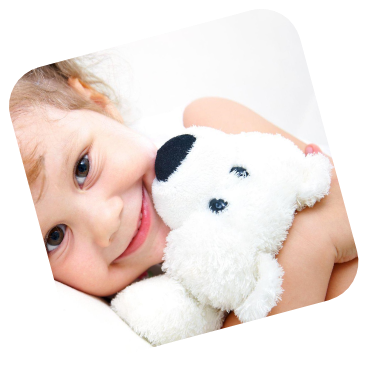
- Address 2148 Ocean Ave, Ste 401A, Brooklyn NY 11229
- Schedule Appointment
- Call Now 718-339-1810

The moment your baby gets their first tooth is an important milestone, and most babies begin to develop teeth between age six months and one year. However, the exact time as to when your baby gets their first tooth may vary considerably. Some children will not have any teeth by age one and are generally just a little slower to develop.
Come visit our Pediatric Dentistry Center for an expert advise on how to care for baby teeth, the best toothpaste to choose for your child’s needs, based on level of risk for tooth decay.
From age three months, you will probably notice your baby begins using their mouth to explore their world, putting their hands in their mouth and other items too! They may begin producing more saliva. Baby teeth usually come through in a specific order listed below:
The baby teeth chart shows this more clearly, indicating where each tooth is situated in your child’s mouth so you can check the baby teeth chart as they come through.
Generally, most children have all their baby teeth by age three, a full complement of 20. Bear in mind that the times given on baby teeth charts and above are approximate. If you are concerned your child’s teeth aren’t developing properly, our pediatric dentists can check their mouth carefully. Often girls are quicker than boys to receive their baby teeth.
As a rule of thumb, you can expect for every six months of life that your child will receive four new teeth. Usually, teeth erupt in pairs in both jaws, so if a tooth comes through on the right-hand side of your child’s jaw, you can expect the corresponding tooth to come through on the left-hand side and vice versa. Also, a child’s primary teeth are smaller than their permanent teeth and are whiter.

By the time your child is age four, their facial bones and jaw begin to grow, and this creates spaces between the primary teeth, which is a perfectly natural process. It simply means their jaws are creating more room for the larger adult or permanent teeth to erupt.
When your child is aged between six and 12, they will have a mixture of both primary and permanent teeth in their mouth as the baby teeth are gradually shared, and their adult teeth emerge.
Although some baby teeth may only be in the mouth for a short time, they have a vital role to play in your child’s health and development. During their time in your child’s mouth, baby teeth help preserve enough space for the permanent teeth to come through properly. They help give your child’s face a normal appearance and allow them to learn how to speak clearly.
Healthy baby teeth make it far easier for your child to eat nutritiously, aiding their overall health and development. If a child has decayed and painful baby teeth, they are far more likely to reject some foods needed for good health and will not learn to eat a varied diet. Healthy baby teeth also help to give permanent teeth a good start. If a baby tooth is infected and decayed, it can potentially damage the permanent tooth developing underneath.
You do need to brush your child’s baby teeth for them thoroughly, at least twice a day using a soft-bristled, age-appropriate toothbrush that has a small enough head so you can clean the teeth right at the back of their mouth comfortably. You only need a tiny smear of toothpaste to clean a child’s teeth.
If your child is under age two, they might not need fluoridated toothpaste, or they may benefit from low fluoride toothpaste. Our pediatric dentists can advise you on the best toothpaste to choose for your child’s needs, based on their level of risk for tooth decay. Children do not develop the ability to spit properly until about age three, and they must not swallow excess toothpaste, which is why you only need a small amount. After age two, we may suggest using fluoridated toothpaste, but again you only need a tiny amount.

Using fluoride toothpaste is one of the most effective ways to help prevent cavities in children’s teeth. Fluoride helps make teeth more resistant to acids found in food. Acids are also produced by mouth bacteria whenever your child has a meal or drink other than water.
Fluoride also helps to replace minerals removed by acids in the mouth, and in some cases, it can even reverse the early signs of tooth decay.
Pediatric Dentistry Center
2148 Ocean Ave, Ste 401A
Brooklyn, NY 11229
☎ 718-339-1810


